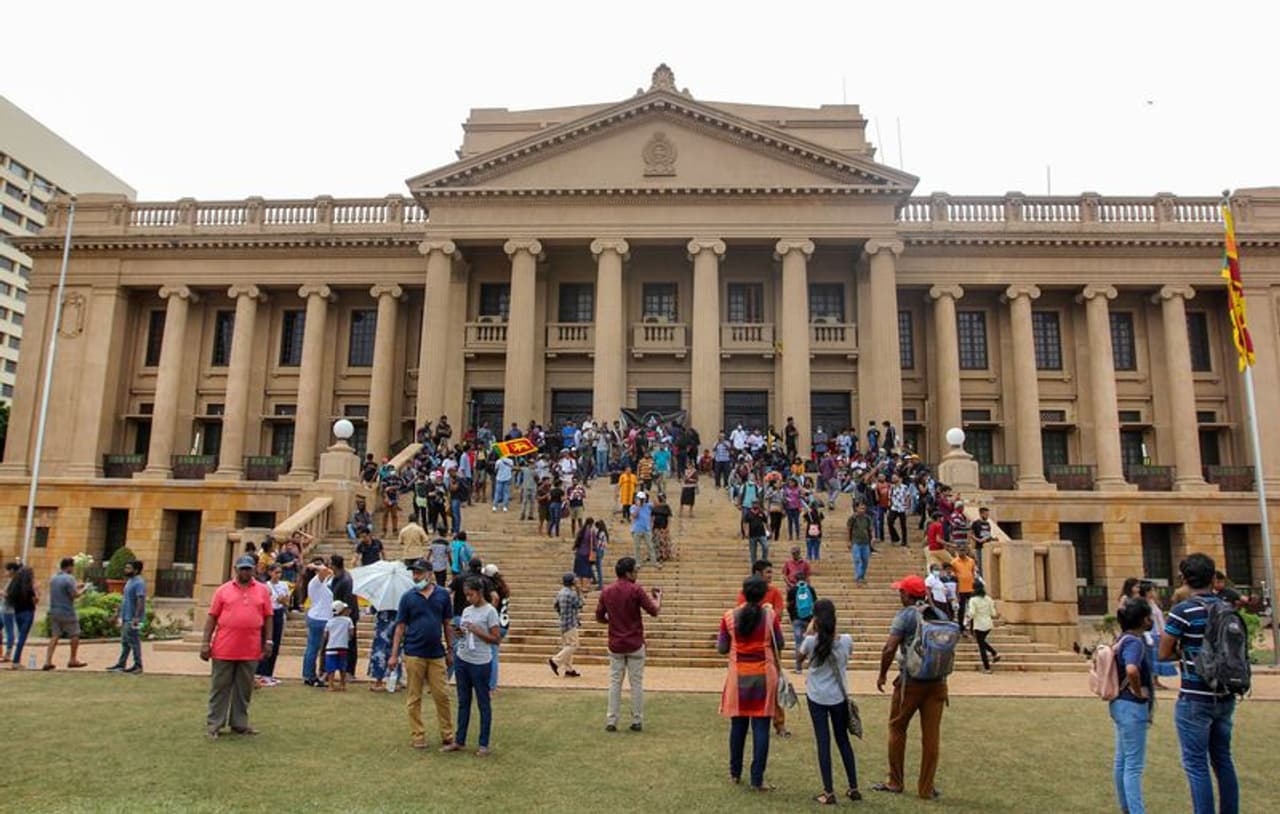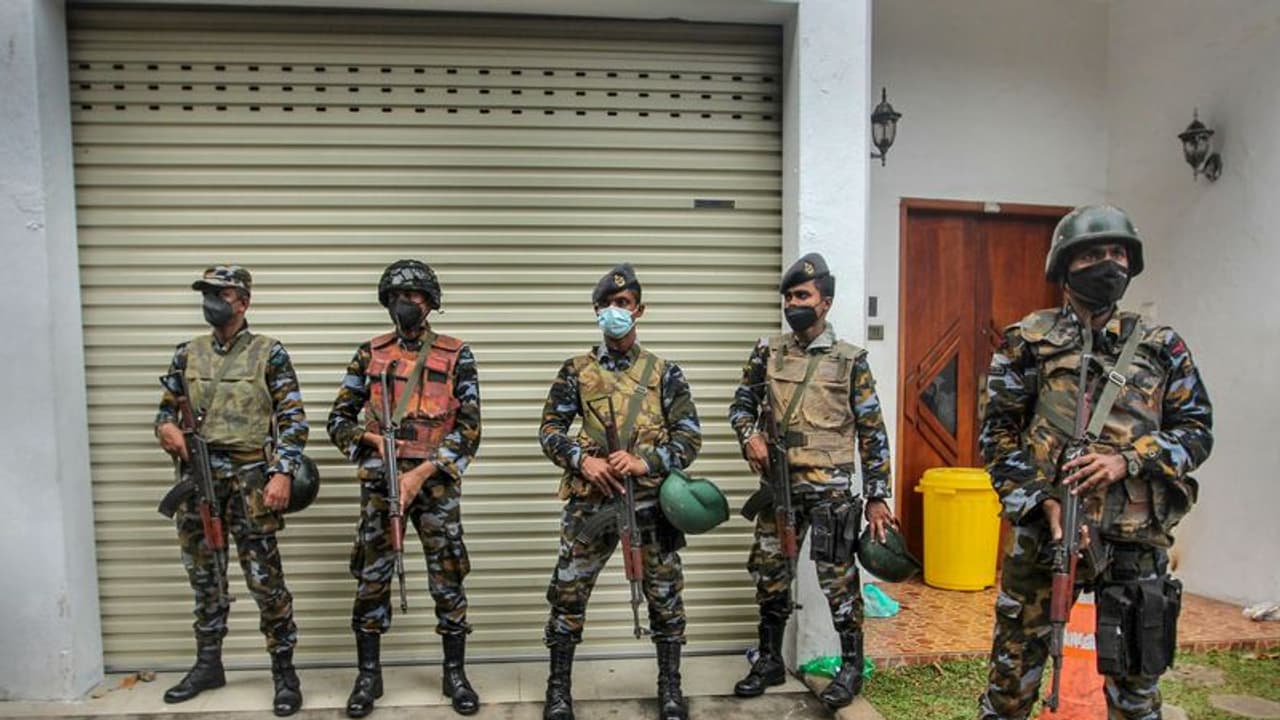Sri Lanka's embattled President Gotabaya Rajapaksa on Wednesday fled to the Maldives on a military jet, hours before he was supposed to step down in the face of a public revolt against him and his family for mishandling the economy that has bankrupted the country.
Sri Lanka on Wednesday declared a state of emergency after President Gotabaya Rajapaksa fled to the Maldives on a military jet in the face of a public revolt against his government for mishandling the country's economy.

The Prime Minister's office informed the media organisations that a state of emergency in the country and a curfew in the Western province had been imposed.
Also read: 'We will occupy Parliament next if...' At Ground Zero with Sri Lankan protesters
Meanwhile, protesters marched to Prime Minister Ranil Wickremesinghe's office, urging him to resign after the news came in that President Rajapaksa had left for the Maldives.
They broke through a barricade despite tear gas before storming the prime minister's office, demanding his resignation. Prime Minister Wickremesinghe has already said he was willing to resign and make way for an all-party government to take over.
On Saturday, Rajapaksa had announced to step down on Wednesday after thousands of protesters stormed his official residence, blaming him for the unprecedented economic crisis that has brought the country to its knees.

Sri Lanka's political parties have stepped up efforts to form an all-party government and subsequently elect a new President on July 20 to prevent the bankrupt nation sliding further into anarchy. Under the Sri Lankan Constitution, if both the president and prime minister resign, the Speaker of parliament will serve as acting president for a maximum of 30 days.
Also Read: Sri Lankan President Gotabaya flees to Maldives; India denies role
The Parliament will elect a new president within 30 days from one of its members, who will hold the office for the remaining two years of the current term.
The anti-government protesters continue to occupy the three main buildings in the capital, the President's House, the presidential secretariat and the prime minister's official residence, Temple Trees, calling for their resignations.
Sri Lanka, a country of 22 million people, is under the grip of an unprecedented economic turmoil, the worst in seven decades, leaving millions struggling to buy food, medicine, fuel and other essentials. Prime Minister Wickremesinghe last week said Sri Lanka is now a bankrupt country.
Also read: Sri Lanka crisis: Did immigration staff block President Rajapaksa's exit?
(With inputs from PTI)
